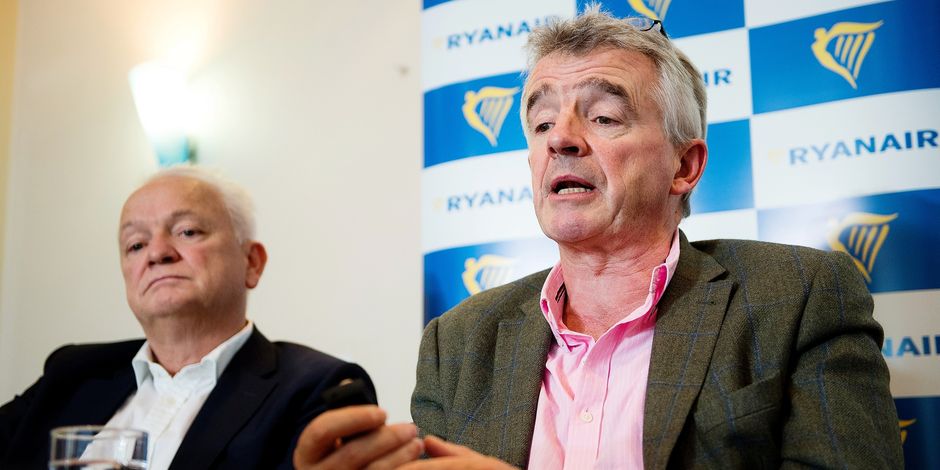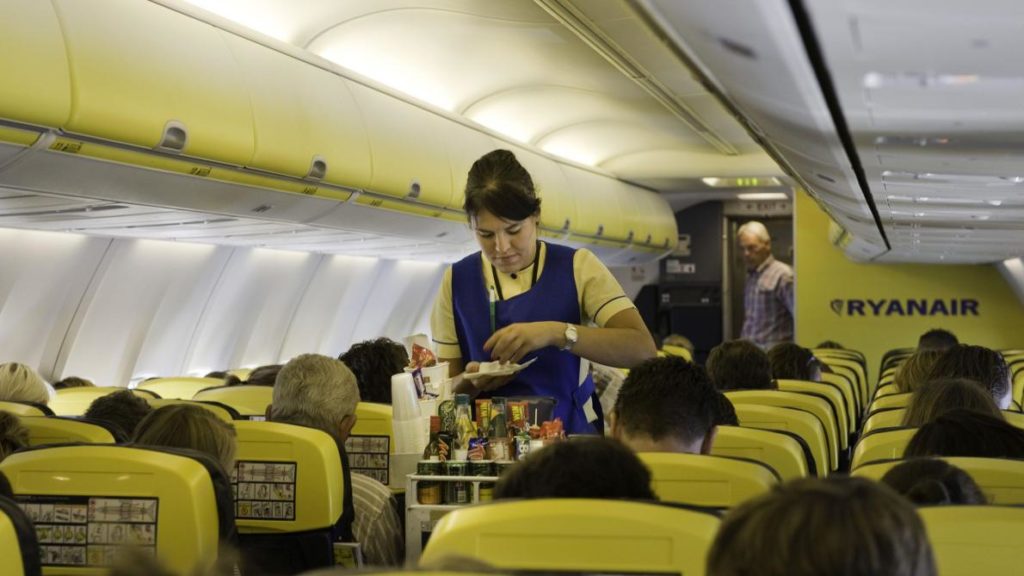Belgian cabin crew employees of low-cost airline Ryanair are finding themselves in the midst of a paradox, as their employer argues it cannot afford to improve their working conditions, despite boasting that it is expecting billions in profit this year.
On Monday, the company was issued a strike notice by Belgian trade union ACV Puls, which cited poor working conditions, Ryanair's stalling of talks regarding a new labour agreement and its failure to comply with the Belgian labour law as the primary reasons.
"In 2019, Ryanair agreed that their staff in Belgium would be covered by Belgian labour law as part of the collective labour agreement. We are now three years later and we find that, on a whole number of crucial points, Ryanair is not applying the labour law correctly," Hans Elsen of the trade union ACV Puls told The Brussels Times.
According to Elsen, Ryanair approaches legislation in a different way than most companies, not only in Belgium but in other European countries, too. Belgium's labour law is fragmented, with thousands of facets that have to be implemented, which facilitates the company's approach to laws.
"They don't look at the law as a whole and say 'we are going to follow it'. Instead, they think 'if we don't implement this aspect of the law, what would be the financial consequences?'"
If not applying certain elements of the law results in severe sanctions, Ryanair will apply them. But if not adopting certain elements of labour law is more financially viable, "they will choose the path of ignoring the legislation and paying the sanction instead," Elsen said. "Is that legal? No. But stopping this is a very tedious procedure."
A criminal investigation is underway against Ryanair in Belgium, and various complaints have been issued with the social inspection, but Elsen isn't hopeful: "I don't expect much result from this any time soon, and in the meantime, people are losing part of their wages."
Three years, little improvement
Elsen listed three aspects of the Belgian labour law that Ryanair failed to comply with, including the fact that the company has not yet updated its payslip system for its Belgian personnel, making it difficult for them to check whether they are being paid correctly.
"The second element is an anecdote: in aviation, flying personnel must undergo an annual medical check-up because they have a safety function. This is normally at the expense of the employer and must take place during working hours, but Ryanair does not want to do this."
Instead, these checks often take place on the staff's days off, while the cost is unilaterally deducted from the cabin crew's wages.
Related News
- Brussels Airport expects nearly one million passengers during Easter holidays
- New airplane boarding tax takes effect from 1 April
- Gradual return to pre-pandemic levels: Four new airlines come to Brussels Airport
According to Elsen, Ryanair has now agreed to pay employees' monthly wages when they are off sick. "That is great, but if they are sick several times a year, they are invited for a performance review and are informally told they are not allowed to be sick when working for Ryanair."
Aside from failing to comply with the law, the three-year labour agreement between unions and Ryanair expired on 31 March, and so far, there is no new deal. According to Elsen, talks have been stalled.
Contradictory finances
"Ryanair falls back on the excuse that the aviation sector is in crisis, citing the coronavirus crisis, the conflict in Ukraine and then the high petrol prices, arguing that it cannot afford to bring significant improvements to the status of cabin crew members," Elsen said.
But while the company is using its financial struggles as an excuse not to improve working conditions, the story it tells in its communication to shareholders is a very different one.

Ryanair CEO Michael O'Leary has previously said Belgian staff should "shut up and go to work." Credit: © Belga
Just last week, the company's CEO Michael O'Leary told the Irish Examiner that Ryanair is targetting a billion-euro profit and that the airline expects to return to profitability in the next year despite higher oil prices, provided there will be no major coronavirus flare-ups or disruption from the war in Ukraine.
“We’d be disappointed if we don’t do somewhere north of a billion in profits in the next 12 months,” O’Leary said.
"There is margin within the company to improve the situation. There is a crisis when it comes to the staff, but not when speaking with shareholders. Meanwhile, we think that the airline's profits should go towards paying their staff correctly," Elsen said.
The accumulation of these issues resulted in the issuing of a strike notice; however, the union hopes actual strike action can be prevented.
"No one gains from an unnecessary strike. We hope Ryanair will once again join us at the negotiation table so that we can find a solution. But if we don't hear from them this week, then we will move on to the second phase of our action plan and that is to make a concrete date for the strike," he said, adding that among staff members, there is a large majority in favour of action.
The Brussels Times reached out to Ryanair for comment on multiple occasions but did not receive a response ahead of publication.

